But in 2023, a new force emerged -- Akhmed TAZHUDINOV (BRN). He stunned the wrestling world by beating both Snyder and Sadulaev in Belgrade, claiming the world title. In 2024, he repeated his feat in Paris, solidifying his status as the man to beat at 97kg.
Now, Tazhudinov enters Zagreb as the wrestler to beat, but he’ll face stiff competition from veterans looking for redemption and rivals who came close to beating him.
Snyder, who missed the podium in Paris, remains dangerous. He once pushed Sadulaev to the limit before the latter adjusted. Snyder also fell in Albania to Arash YOSHIDA (JPN), the current Asian champion. Yoshida, blends Iranian and Japanese techniques and has excellent underhook defense and is a serious medal contender.
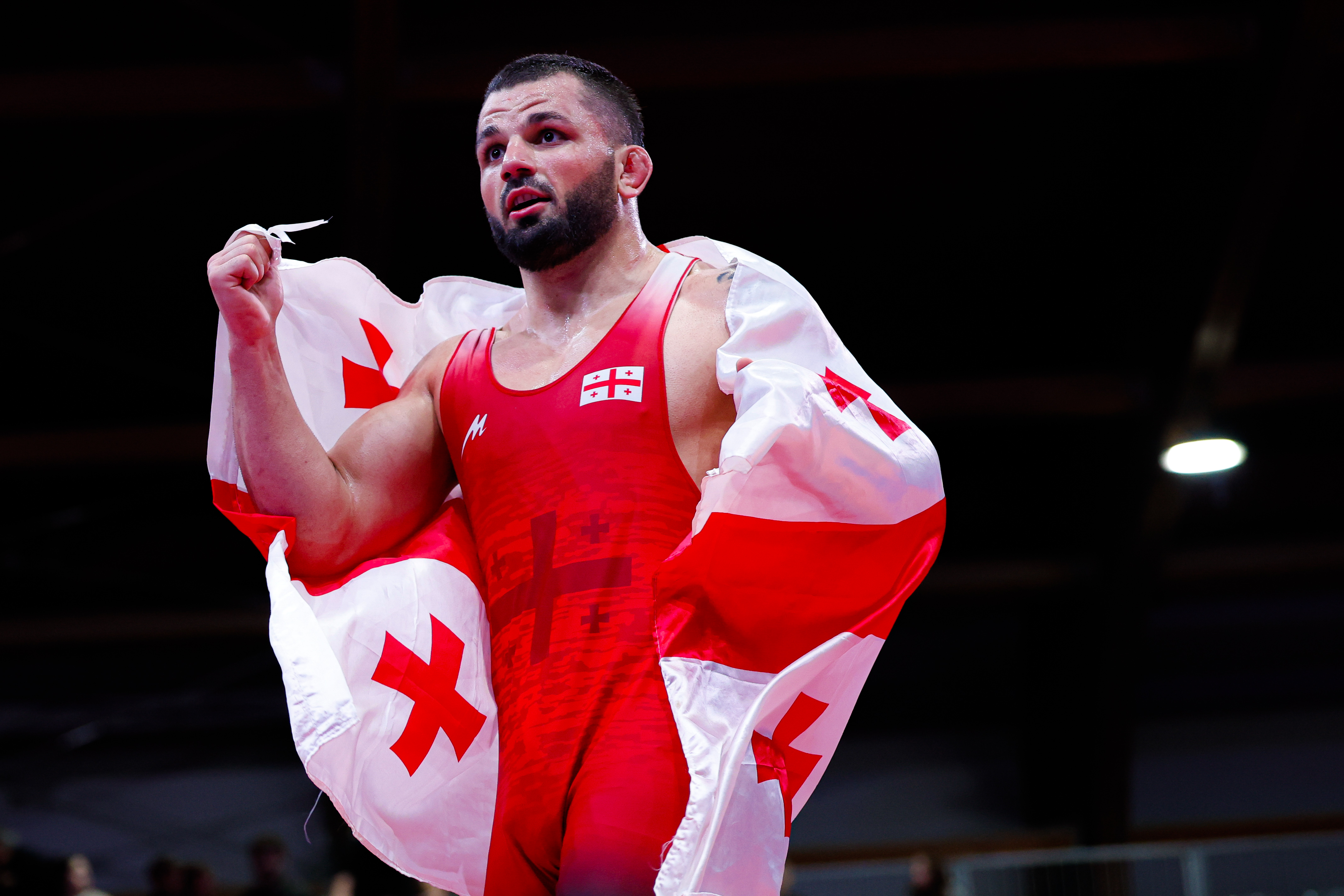 Givi MATCHARASHVILI (GEO) is a three-time European champion. (Photo: United World Wrestling / Kostadin Andonov)
Givi MATCHARASHVILI (GEO) is a three-time European champion. (Photo: United World Wrestling / Kostadin Andonov)
European champion Givi MATCHARASHVILI (GEO) is another name to watch. He won Olympic silver in Paris but was pinned quickly by Tazhudinov. Still, as the number two seed, he avoids Tazhudinov until the final and must contend with Snyder, Yoshida, and possibly Sadulaev on his side of the bracket.
Amirali AZARPIRA (IRI), seeded number five, came closest to beating Tazhudinov in Paris, leading 3-0 before surrendering two late takedowns to lose 4-3. Back from injury, his fitness will be key if the two meet again in Zagreb.
Rizabek AITMUKHAN (KAZ), Kazakhstan’s first freestyle world champion, also pushed Tazhudinov hard at the Asian Championships but couldn’t close the match. He’s a strong bet for the podium. Magomedkhan MAGOMEDOV (AZE) returns after a bronze in Paris and a silver at the 2023 World Championships, remains a serious threat in one of the deepest brackets in the championships.
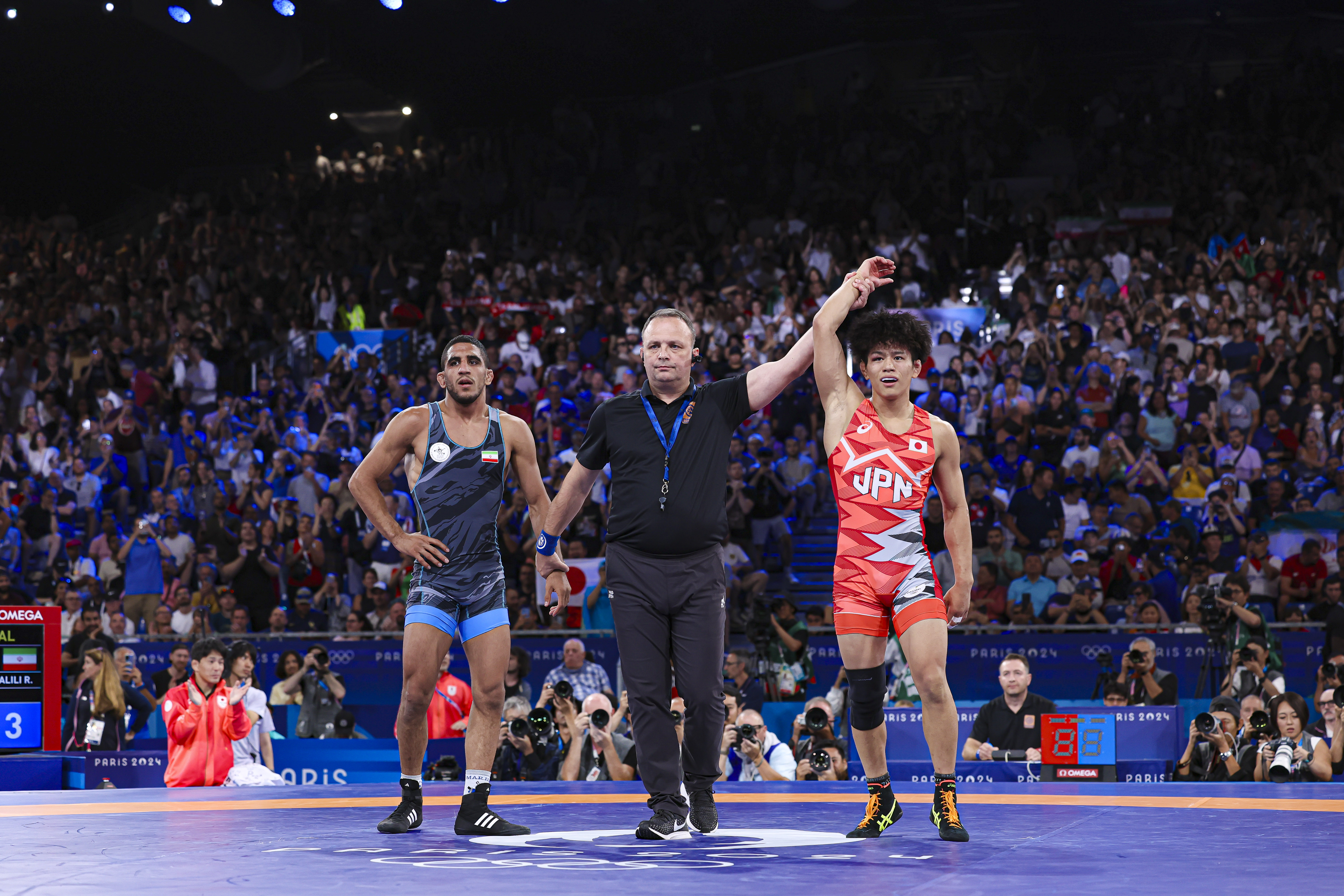 Kotaro KIYOOKA (JPN) defeated Rahman AMOUZAD (IRI) in the 65kg Olympic final. (Photo: United World Wrestling / Kadir Caliskan)
Kotaro KIYOOKA (JPN) defeated Rahman AMOUZAD (IRI) in the 65kg Olympic final. (Photo: United World Wrestling / Kadir Caliskan)
Olympic final rematch on cards
Apart from Tazhudinov, Kotaro KIYOOKA (JPN) is the only other Freestyle Olympic champion in Zagreb. At 65kg, all four returning medalists from Paris are entered, though Islam DUDAEV (ALB) will wrestle at 70kg.
A repeat of the 2024 Olympic final is expected at 65kg, with Kiyooka and silver medalist Rahman AMOUZAD (IRI) on course to collide if seeding holds. Kiyooka has never wrestled at a World Championships and skipped the season after winning gold in Paris, but his resume includes wins over world-class opponents. He beat Tokyo Olympic champion Takuto OTOGURO (JPN) to earn Japan’s Paris spot, and then defeated Asian champion Kaisei TANABE (JPN) twice to make the team for Zagreb.
Amouzad will be his biggest threat, looking to avenge the Olympic final. Barring that loss, the Iranian has been a consistent force, using his under-over technique to catch opponents off guard. If he can limit Kiyooka's relentless attacks and keep the match low-scoring, he may have a chance.
European champion Ibragim IBRAGIMOV (UWW), the world U23 champion, brings a full arsenal to challenge both Kiyooka and Amouzad. He could be the biggest disruptor in the bracket.
Sebastian RIVERA (PUR), an Olympic bronze and world silver medalist, could medal again despite not competing since Paris. Vazgen TEVANYAN (ARM) and SUJEET (IND) are also aiming for podium finishes.


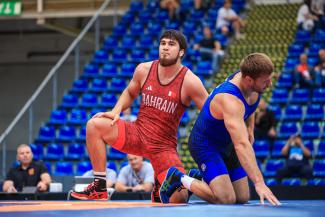
 Givi MATCHARASHVILI (GEO) is a three-time European champion. (Photo: United World Wrestling / Kostadin Andonov)
Givi MATCHARASHVILI (GEO) is a three-time European champion. (Photo: United World Wrestling / Kostadin Andonov) Kotaro KIYOOKA (JPN) defeated Rahman AMOUZAD (IRI) in the 65kg Olympic final. (Photo: United World Wrestling / Kadir Caliskan)
Kotaro KIYOOKA (JPN) defeated Rahman AMOUZAD (IRI) in the 65kg Olympic final. (Photo: United World Wrestling / Kadir Caliskan)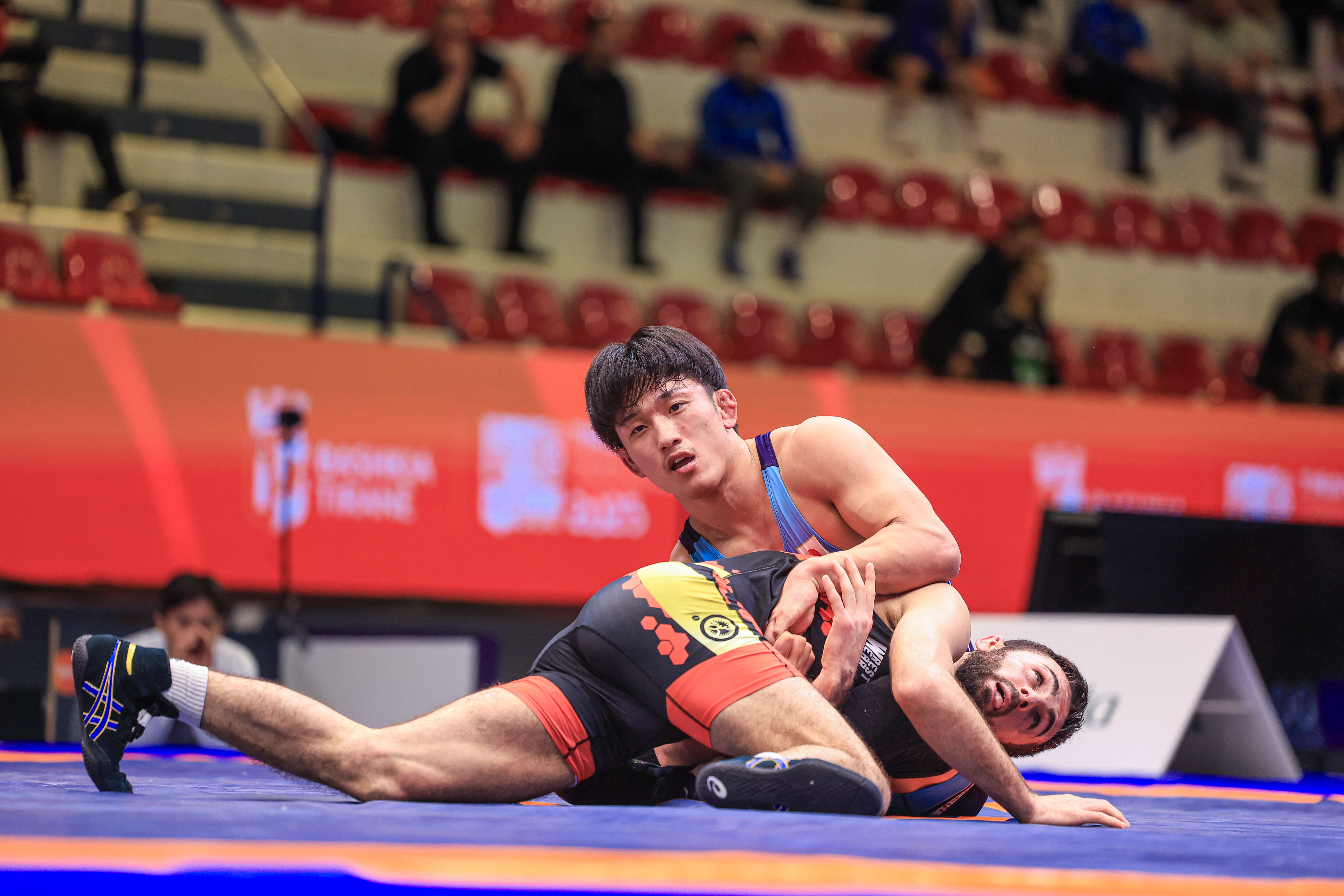 Takara SUDA (JPN) is the Asian champion at 61kg. (Photo: United World Wrestling / Amirreza Aliasgari)
Takara SUDA (JPN) is the Asian champion at 61kg. (Photo: United World Wrestling / Amirreza Aliasgari)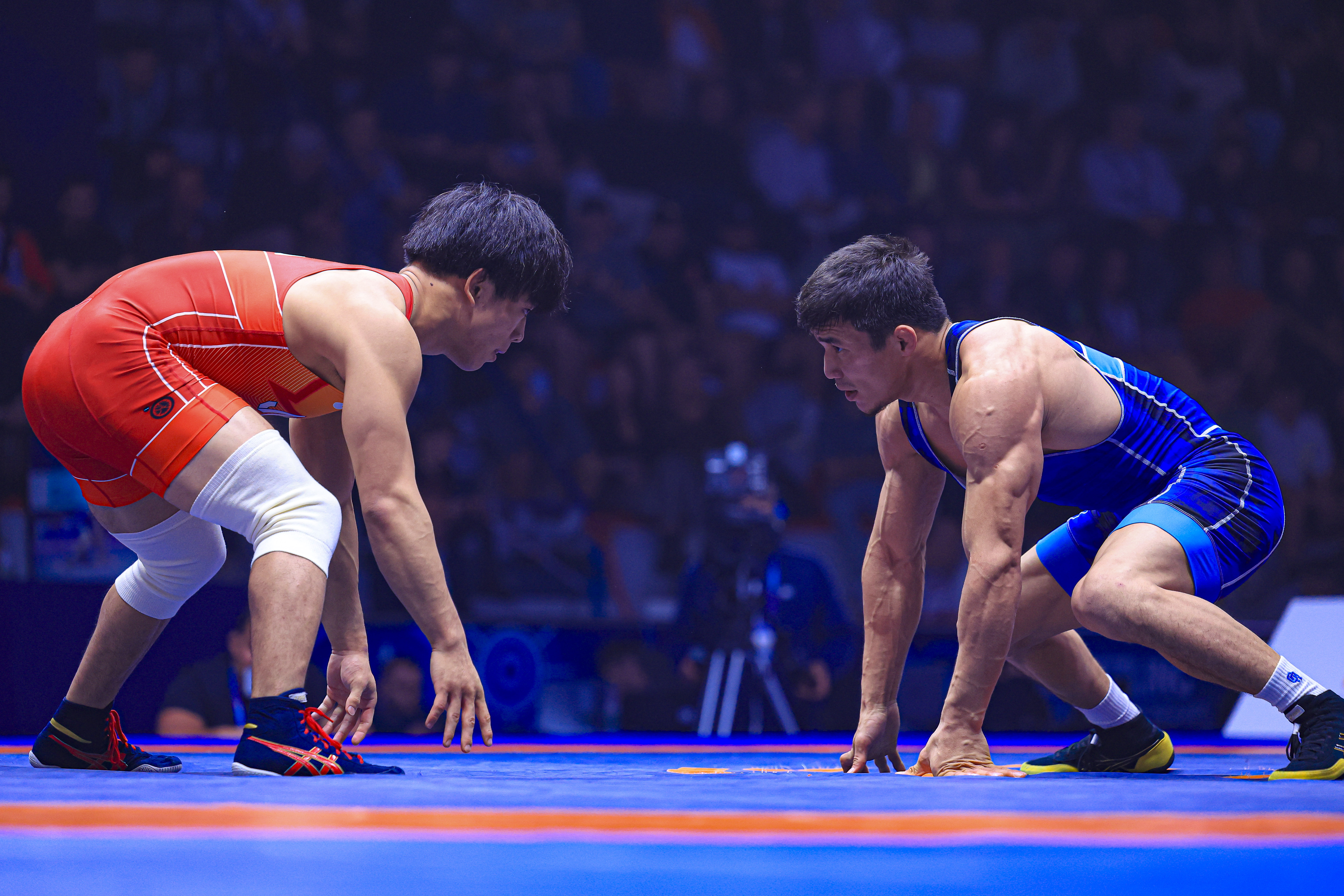 Nurkozha KAIPANOV (KAZ), blue, and Yoshinosuke AOYAGI (JPN) wrestled in the 70kg final at 2024 World Championships. Kaipanov won gold. (Photo: United World Wrestling / Kadir Caliskan)
Nurkozha KAIPANOV (KAZ), blue, and Yoshinosuke AOYAGI (JPN) wrestled in the 70kg final at 2024 World Championships. Kaipanov won gold. (Photo: United World Wrestling / Kadir Caliskan)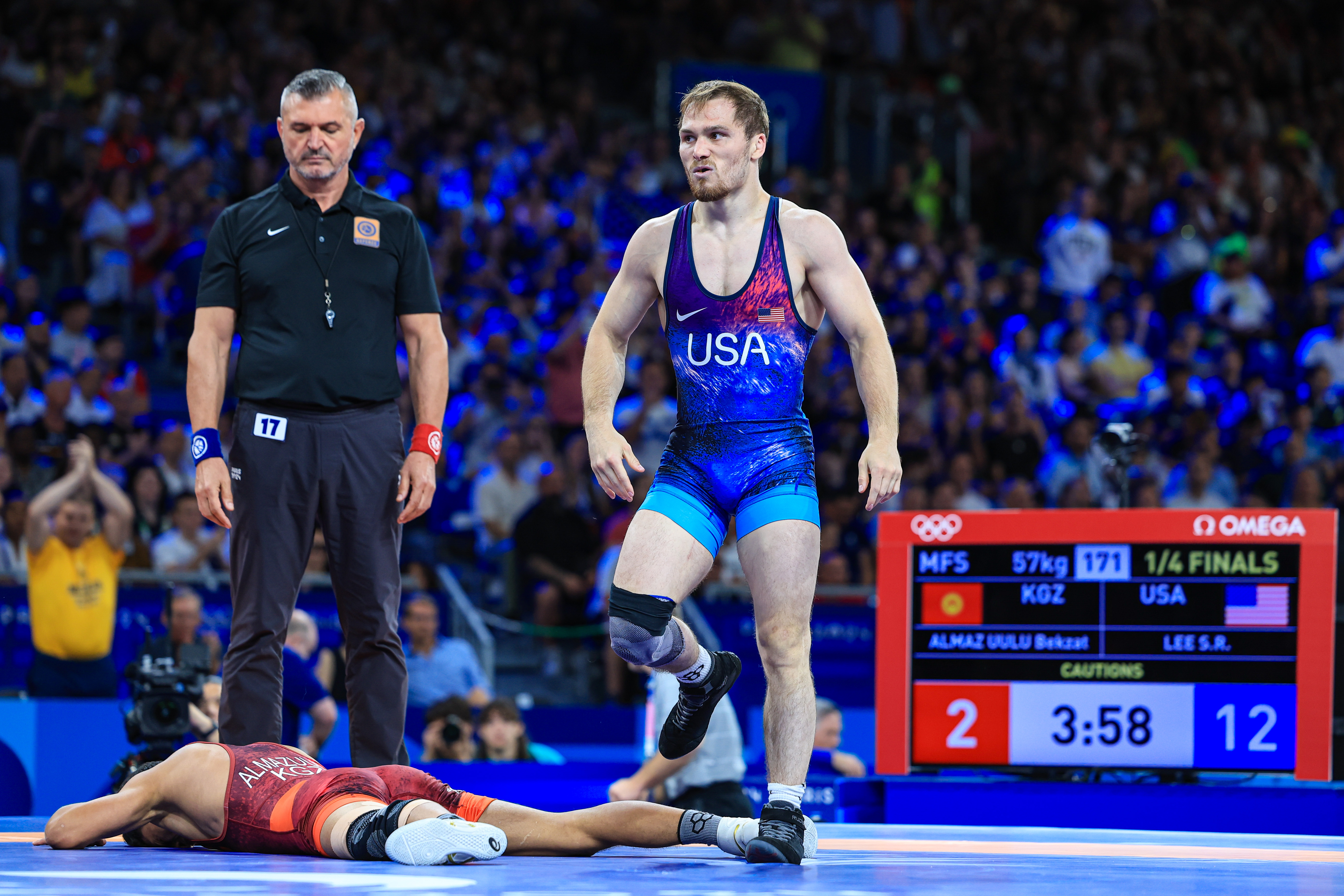 Olympic silver medalist Spencer LEE (USA) is chasing his first world title at 57kg. (Photo: United World Wrestling / Amirreza Aliasgari)
Olympic silver medalist Spencer LEE (USA) is chasing his first world title at 57kg. (Photo: United World Wrestling / Amirreza Aliasgari)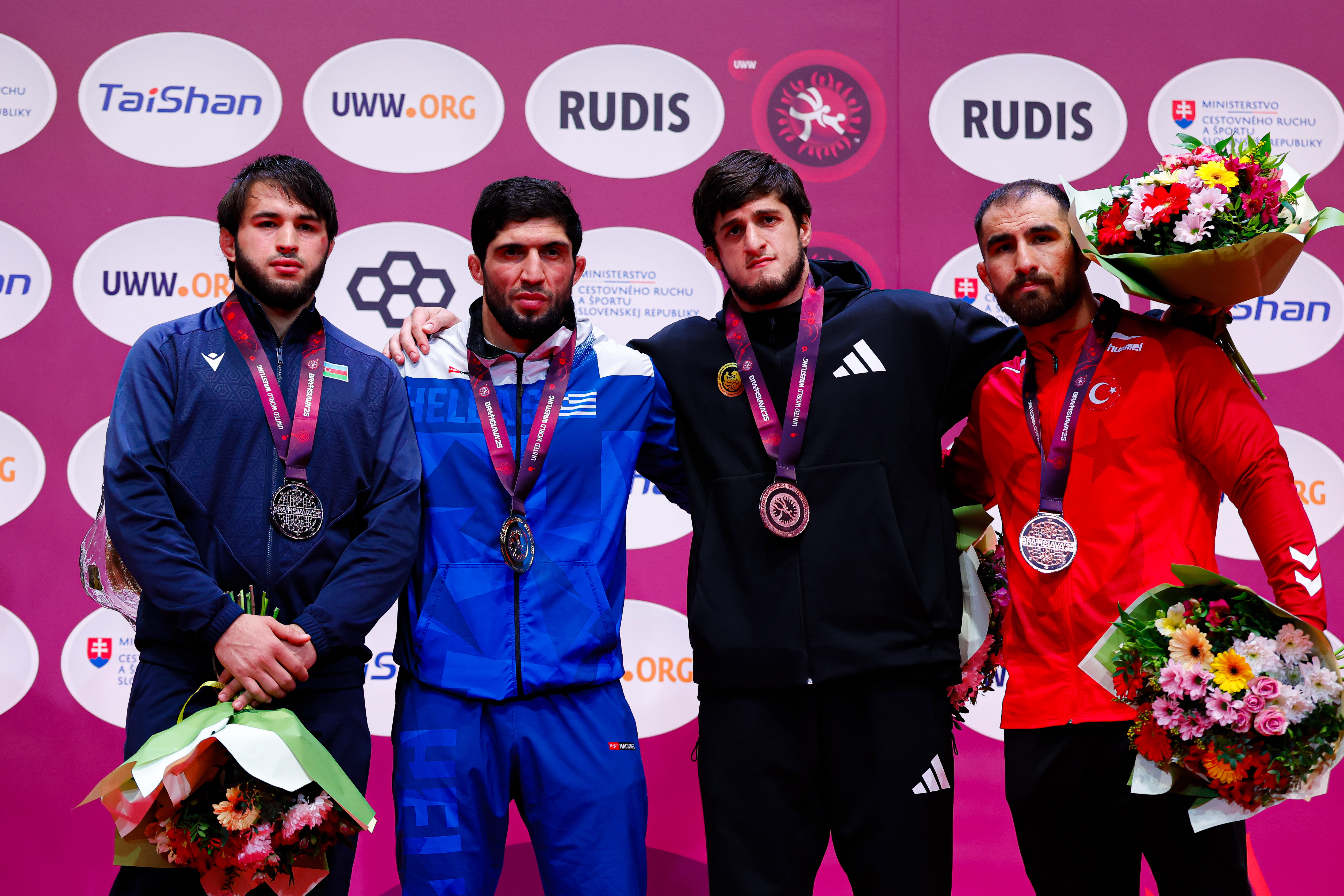 All four 2025 European Championships medalist Osman NURMAGOMEDOV (AZE), left, Dauren KURUGLIEV (GRE), second from left, Miriani MAISURADZE (GEO), third from left, and Feyzullah AKTURK (TUR) are medal threats in Zagreb. (Photo: United World Wrestling / Kostadin Andonov)
All four 2025 European Championships medalist Osman NURMAGOMEDOV (AZE), left, Dauren KURUGLIEV (GRE), second from left, Miriani MAISURADZE (GEO), third from left, and Feyzullah AKTURK (TUR) are medal threats in Zagreb. (Photo: United World Wrestling / Kostadin Andonov)
Share your thoughts.
Comments